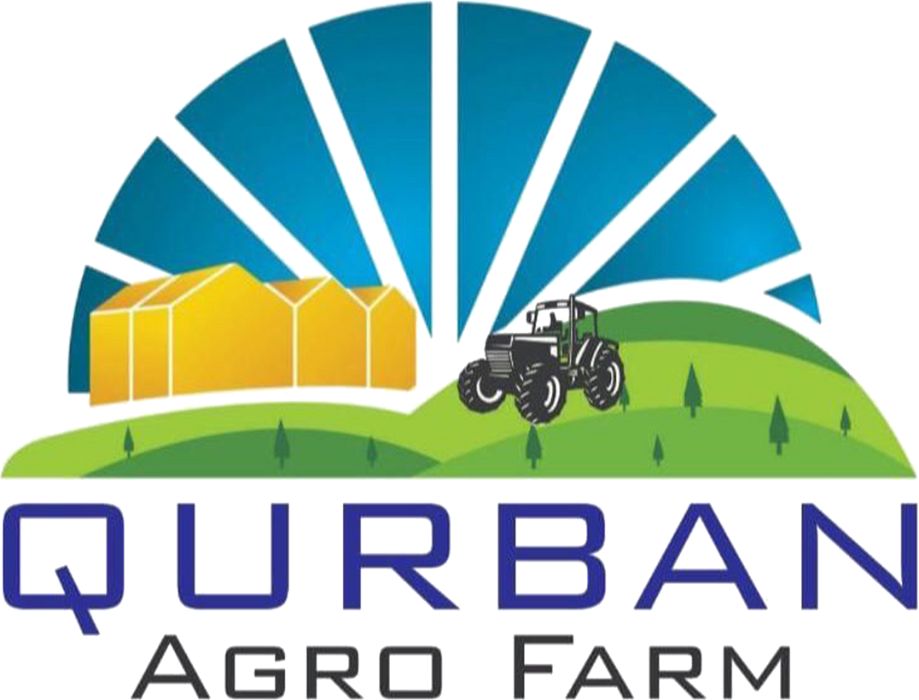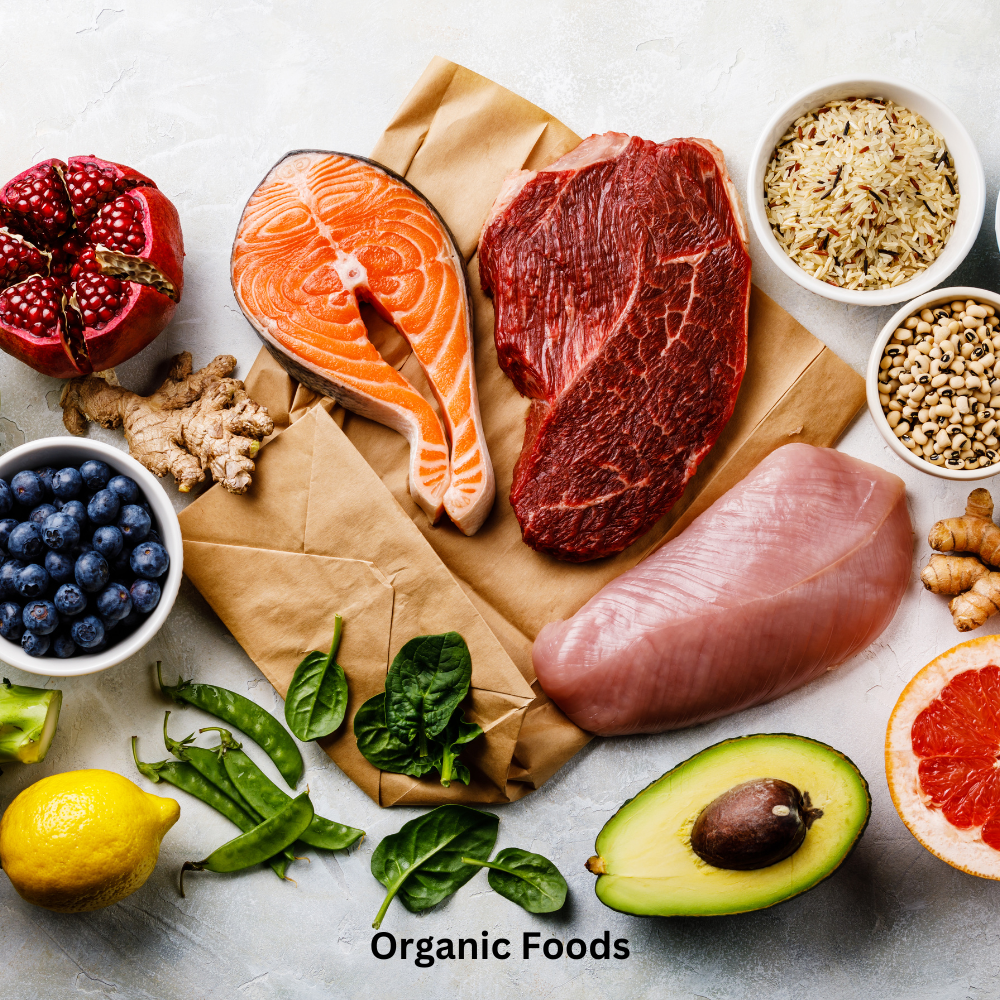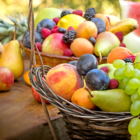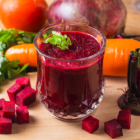Organic foods are food grown without artificial chemicals. It is produced using natural soil and agricultural production practices that promote ecological balance by balancing and improving soil and water quality.
This food does not contain genetically modified organisms (GMOs) so it helps to minimize the use of synthetic materials, and conserve biodiversity.
Since the late 20th century, with the increasing numbers of populations, the market for organic food also has grown, now it has become a multibillion-dollar industry producing a large amount of organic food with distinct production, processing, distribution, and retail systems.
An approach says eating organic food reduces the greenhouse effect, soil & water pollution along with dependency on oil pesticides and usage of fertilizers. By avoiding conventional foods, you are avoiding almost 700 fewer chemicals and pesticides.
Types of Organic Foods
Organic food is sustainable eating that includes fresh produce soil products such as fruits and vegetables, meats, and dairy products as well as processed foods such as drinks and frozen meals. Perhaps organic foods have been classified into 4 major types:
- ORGANIC MEAT
- ORGANIC FISH & SEAFOOD
- ORGANIC FRUITS
- ORGANIC VEGETABLES
ORGANIC MEAT:
Animals that are not given any antibiotics or growth hormones to increase their efficiency to grow soon or to produce foods such as eggs or milk are considered Organic meat after slaughter.
ORGANIC FISH & SEAFOOD:
Organic fish and seafood are considered organic when they are directly hunted from sea ponds or rivers. But nowadays some fish farms have been developed where natural growth is encouraged with the following requirements:
- Per square meter should contain a maximum number of fishes.
- Organic feed must be provided to fishes
- No chemical such as oxygen would be added to water for fish farming
ORGANIC FRUITS:
Organic Fruits are the best choice as compared to conventional fruit as heavy chemicals are used to produce conventional fruits to fulfill fruit requirements. Perhaps Organic fruits can’t look perfect as we all know insects are attracted to the sweetness and fruity smells of organic fruits, as these fruits are grown without chemicals, pesticides, and fertilizers.
Unlike conventional fruits, organic fruits may not look perfect as they get damaged soon or they might have blemishes or marks on them.
ORGANIC VEGETABLES
Vegetables with peels and without peels in both ways are used for making food. Organic vegetables are rich in taste and are away from pesticides when it comes to organic procedures.
Unlike fruits, vegetables are out of shape but rich in taste. But be careful, labeling a food ‘organic’ does not mean the product is nutritious or healthy as labeling something organic is based uniquely on the agricultural field and farm practices. Organic vegetables such as Cucumber, beets, garlic, onion, and peas are much tastier and healthier!
Who Should Eat Organic Fruits And Vegetables?
Organic food (fruits & vegetables) is a good option for all people. Especially for people who are health and diet conscious as these organic fruits & vegetables have higher levels of vitamin C (good for women), certain minerals, and antioxidants to keep you young.

Also for those who are diabetic and strongly restricted to follow proper diets from doctors. A study shows organic fruits and vegetables help decrease levels of cancer-causing glyphosate, the main ingredient in a common pesticide that is used in inorganic fruits and vegetables.
For Kids, organic fruits and vegetables are also good options to help them grow But if you are about to buy organic fruits and vegetables you should consider low-budget organic fruits and vegetables If your child is a picky eater or allergic to some organic vegetables.
Benefits of Organic Fruits and Vegetables:
Organic farming methods tend to be better for the environment as they reduce pollution, and soil erosion by using less energy, increase soil fertility, and conserve water. This is the reason organic farming produces organic fruits and vegetables, which is considered healthy for soil health.
Organic fruits and vegetables contain important vitamins, minerals, and plant chemicals. They also contain fibers which are important to digest foods.
Natural cultivation practices are considered better for growing organic fruits and vegetables than chemical soil management as non-organic farms contain harmful pesticides, toxic fertilizers, and animal waste which are a major water pollution threat.
Not much water is required to produce organic fruits and vegetables. On the other hand, all these organic fruits and vegetables contain good amounts of water apples, potatoes, and tomatoes.
Organic natural plant feed achieves a long-lasting effect on growing organic fruits and vegetables because of its slow release, which enables the nutrients to reach the crops as they grow.
Adding a diet high in organic fruits and vegetables can help protect you against cancer, diabetes, and heart disease. All these diseases are commonly found everywhere in the world.
Organic-based fertilizers used to grow typically give new life to natural materials that would otherwise end up in the trash, unlike synthetic fertilizing products, which heavily depend on fossil fuels.
To reduce obesity, organic fruits and vegetables are the best options as they have high minerals to fulfill excessive food needs.
Final Thoughts
Organic fruits and vegetables are the best choices if you want to have a balanced life especially when you are health-conscious or on a diet as no-hazard chemicals (pesticides, antibiotics, or hormones) are used to grow organic fruits and vegetables.
All organic fruits and vegetables are nutrient-rich and you can get all the benefits you want to get from organic foods. But keep in mind due to their natural growth these organic fruits and vegetables may have a higher price rather than conventional fruits and vegetables.
Promoting the consumption of organic fruits and vegetables is also beneficial for the environment as it is the best option for ecosystem and soil health along with good taste. As we are all aware with population growth these organic fruits and vegetables are not enough to fulfill requirements so it’s not easy to find these organic fruits and vegetables. And luckily if you find them you must try to consume them on time as they have short shelf-lives.
Frequently Asked Questions
Why do organic foods cost more?
Organic foods cost more because they require labor-intensive farming, natural fertilizers, and organic feed, which are more expensive. Farmers also produce smaller yields, face certification costs, and manage limited supply, all of which increase prices.
Are organic foods more nutritious than conventional foods?
Organic foods are not necessarily more nutritious than conventional foods, but they contain fewer harmful chemicals like pesticides and synthetic additives. They may have slightly higher levels of certain nutrients, such as antioxidants, making them a healthier choice for some people.




